Click to Skip Ahead
Many pet parents are concerned about the possibility of side effects from conventional deworming medications, and look for natural alternatives they can give their feline friends at home to keep them parasite-free. So, are natural deworming methods a good option?
There are no proven safe and effective ways to deworm your cat naturally at home. Natural doesn’t always mean safe, and there is a lot of misinformation out there about available natural options to prevent and treat worms in cats.
However, there are measures you can take at home to help prevent your cat from getting worms, and safe, tested and vet-approved deworming options that you can give to your cat. Let’s look into this in more detail, and discuss why you should always seek advice from your vet and look at current evidence when determining the best methods for how to deworm a cat.

Are Any Natural Dewormers For Cats Safe and Effective?
There is a lot of misleading and anecdotal information online about natural dewormers for pets. Research is ongoing, but currently there is very little evidence that any are effective, and many can have serious safety concerns for your cat as well.
Garlic is a commonly recommended natural dewormer. Some small studies have looked into its use as a dewormer.1 They did demonstrate a reduction in worm egg production, but no evidence that garlic kills adult worms. In addition, garlic is toxic to cats and so it is unsafe to use as a natural dewormer and should be avoided.
Although more commonly used for external parasites such as fleas and ticks, diatomaceous earth is often suggested as another deworming option. Although food-grade diatomaceous earth is generally safe and non-toxic, there are currently no scientific studies to demonstrate that it is effective for worm control in cats. Diatomaceous earth is thought to work by physical damage and desiccating parasites, and therefore, may not be effective inside the gastrointestinal tract.
Pumpkin seeds and apple cider vinegar are two more examples that are widely reported to have deworming effects, without any scientific evidence to back up the anecdotal claims.
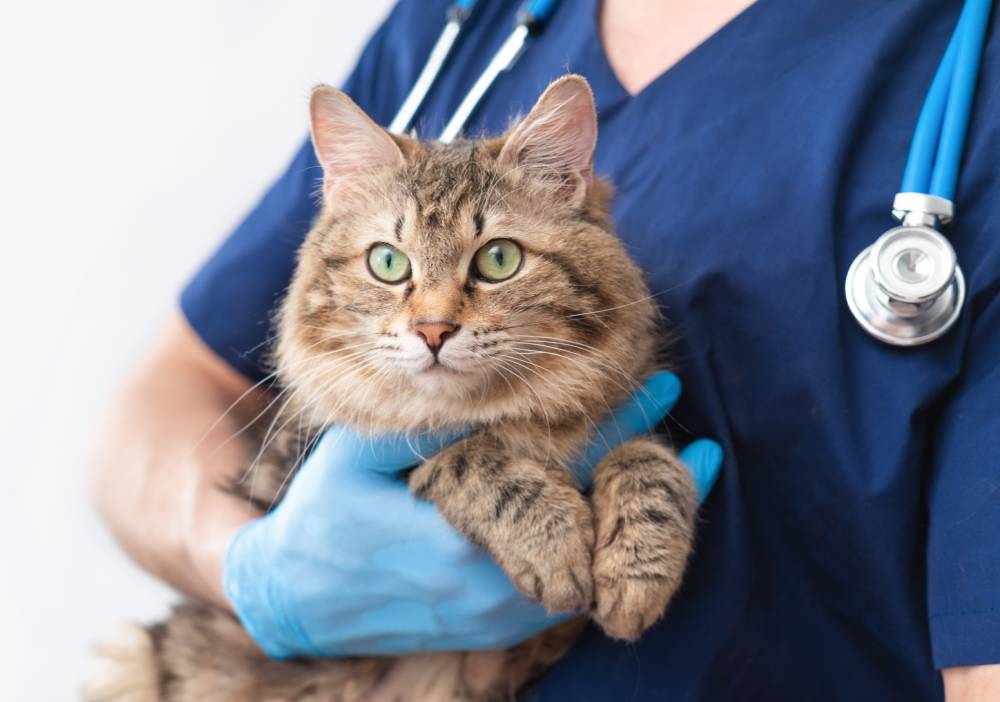
Natural Ways to Help Prevent Worms
There are some control measures that you can take at home to help reduce the risk of internal parasites.
- Feed your cat a high-quality complete cat food, this reduces the risk of parasite contamination from their food and can reduce hunting behaviors.
- Avoid feeding raw meat. Raw meat and consumed wildlife can lead to parasite infestation.
- If your cat goes outside, clean up any soil contaminated with feces in your yard daily. This will reduce the presence of eggs and infective larvae.2
- Scoop feces from litter trays at least daily
- Cover childrens’ sandboxes when not in use to discourage using these as a litter box
- Try to reduce hunting by your cat
- Use regular flea control, as tapeworms are transmitted to cats by fleas
- Minimize contact with wildlife and other domestic animals
Talk to your vet, they will be happy to work with you to choose the most appropriate deworming regime for your cat based on both their lifestyle and individual risk factors.
Kittens, cats that go outdoors, and cats in multi-cat households should be wormed more frequently. Vets will also take into account your cat’s age, weight, overall health, and the type of worms that are present when choosing the correct deworming medication.
You can also discuss fecal egg counts with your veterinarian. The Companion Animal Parasite Council (CAPC) advises fecal examinations at least four times a year during the first year of life and at least twice a year in adults.
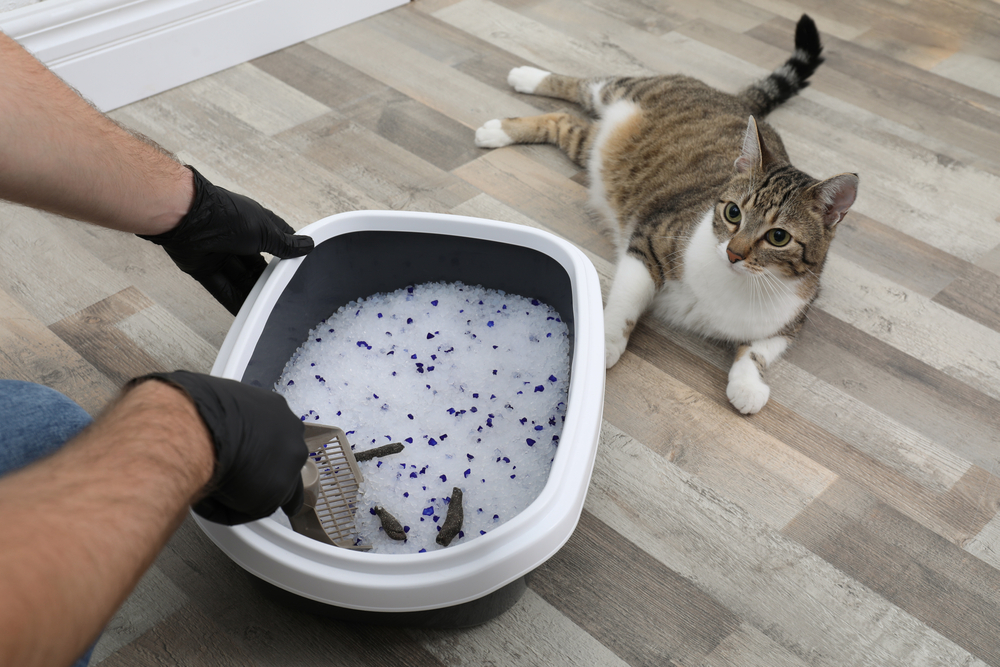
Why Worry About Deworming Your Cat?
Intestinal worms, particularly roundworms and tapeworms, are common in cats. They spread easily, and cats can contract them in several different ways. Depending on the type of worm they can be passed through the feces, by cats ingesting an infected host (such as a bird or rodent), ingesting fleas when grooming, and kittens can pick up roundworms from their mother’s milk. Not all cats will show obvious signs of intestinal parasites but signs can include a bloated tummy, weight loss, vomiting, diarrhea, abdominal pain and a dull coat. Intestinal worms are a particular risk to kittens and debilitated older cats.
As well as deworming being important to keep your cat healthy, some worms also pose a health risk to humans through contact with infected feces or soil.

Conclusion
When it comes to worms, prevention is better than cure. The safest way to deworm your cat at home is by using a medication prescribed by your vet. Natural home remedies have their own risks and currently most have no scientific evidence of efficacy in cats. You can also reduce your cat’s risk of contracting worms at home by avoiding feeding a raw diet, keeping your cat up to date with flea control, and reducing your cat’s exposure to contaminated feces.
Featured Image Credit: Prostock studio, Shutterstock



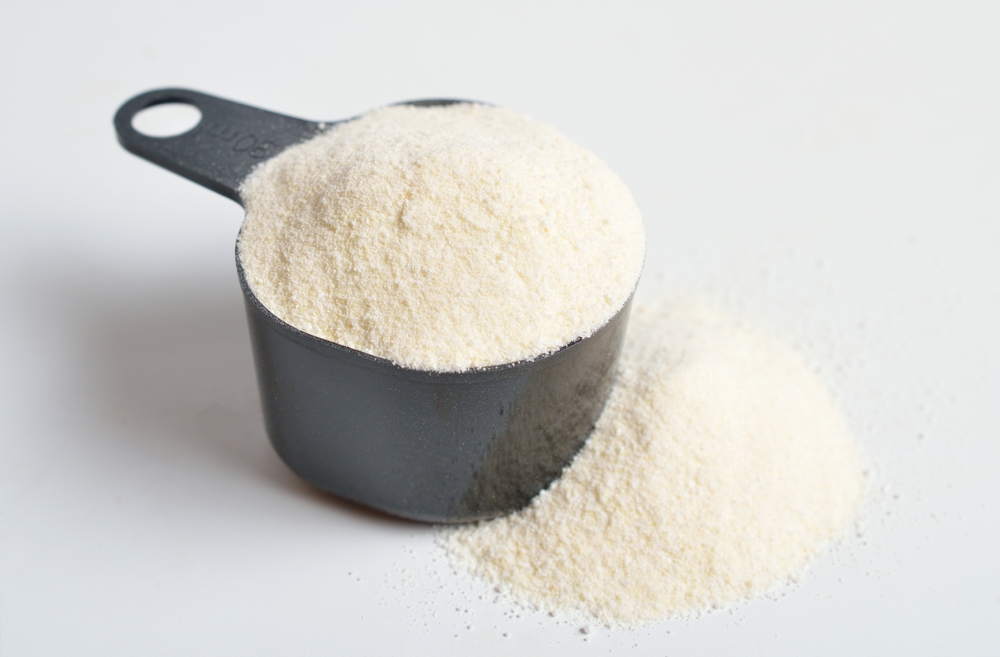
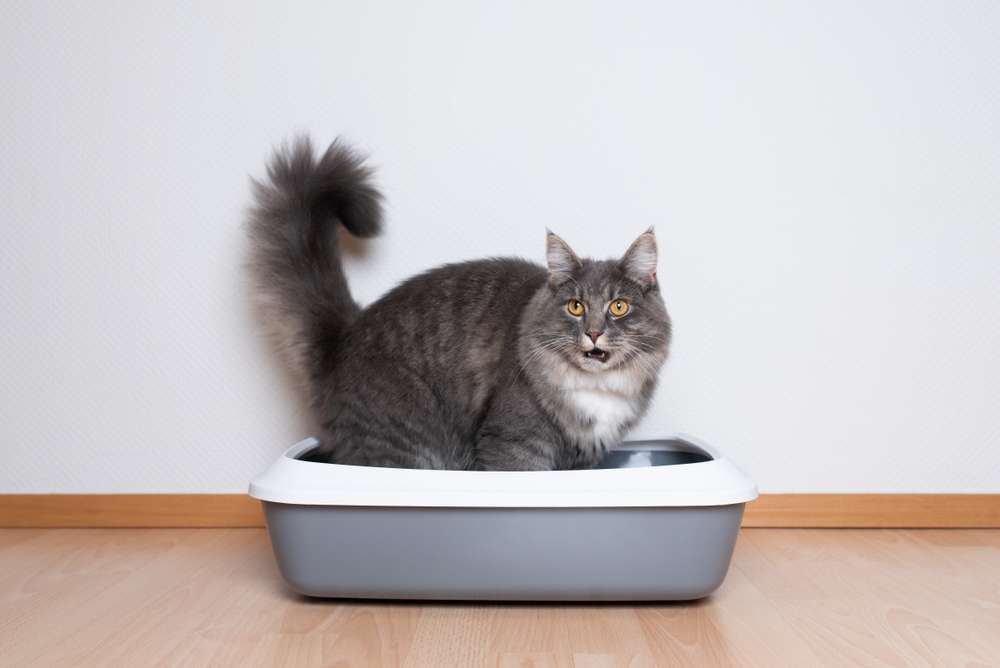




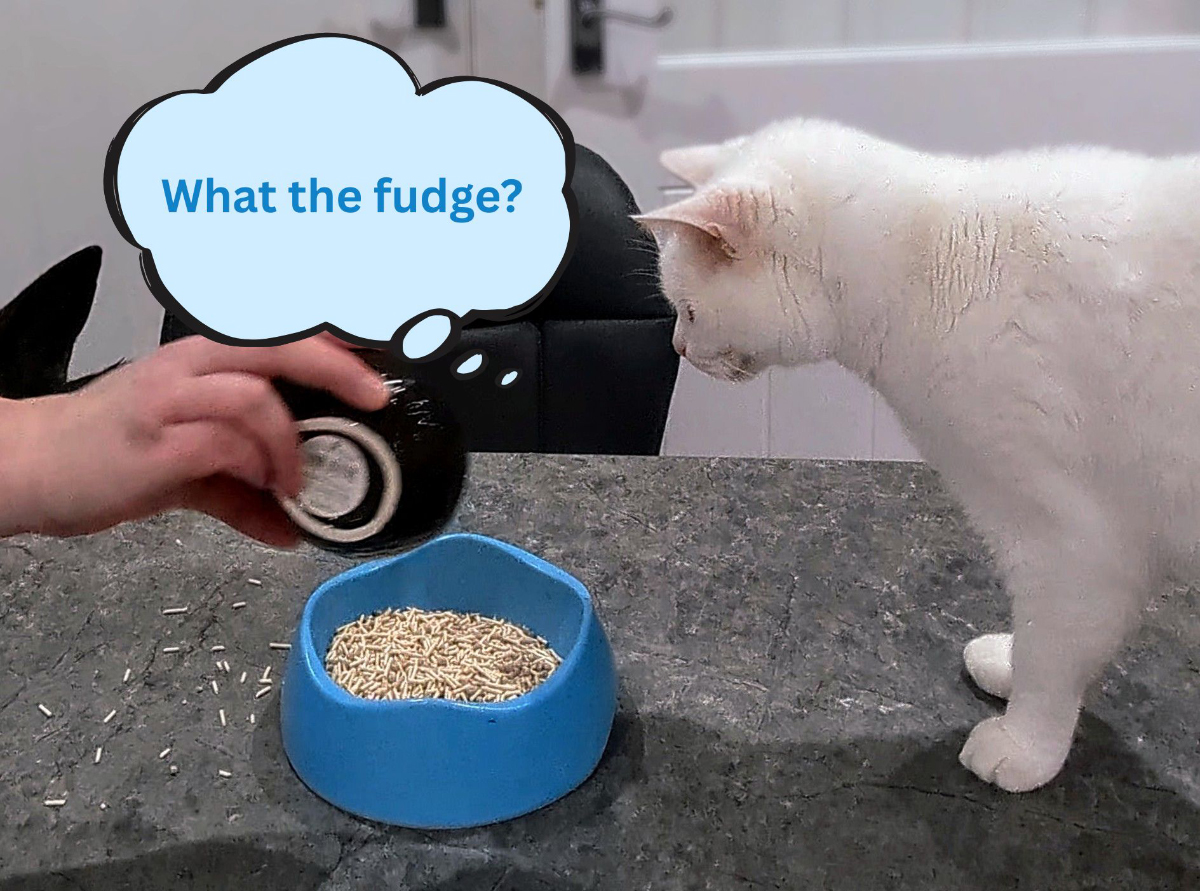


I have a stray cat that I feed twice a day and noticed a white worm fall from her tail the other day and still has some around her but area what's the best thing to do with her
Hi Mary,
We are really thankful to you for taking care of the stray cat. It’s concerning to see worms, as they indicate a parasitic infestation that needs attention. The best course of action is to take her to a veterinarian as soon as possible for proper diagnosis and treatment. They can recommend the most effective deworming medication based on her size and specific needs.
For any other concerns or questions, feel free to arrange an appointment with one of our vets at Pangovet.com
Thank you again for your kindness towards her, and we hope she gets the care she needs.